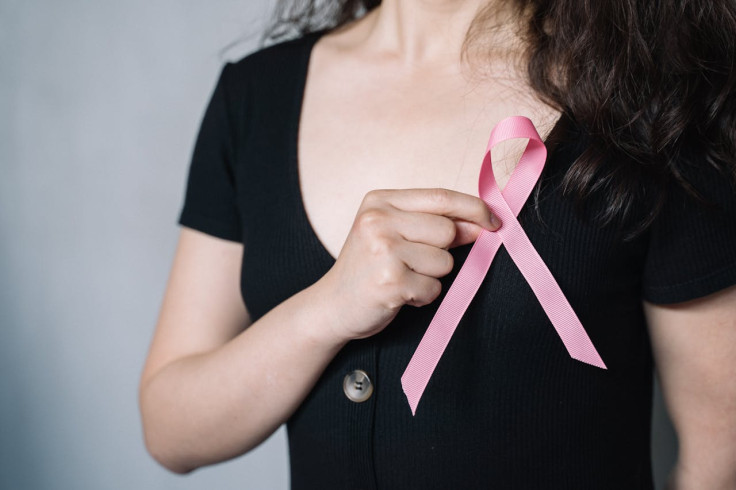UK Scientists Develop Bra-Integrated Breast Cancer Monitoring System
The device tracks breast changes, boosting survival odds

Scientists are developing a wearable device that could revolutionise breast cancer monitoring. The device fits discreetly inside a bra, potentially detecting tumour growth in real-time.
Researchers hope this device will offer a convenient method of detecting tumour growth that patients can use "in the comfort of their own homes."
Nottingham Trent University's Medical Technologies Innovation Facility (MTIF) is developing this bra-integrated device, which will use electrical currents to detect minute changes in tissue fluids surrounding and within breast cells, potentially indicating tumour growth.
The device's effectiveness lies in distinguishing between healthy and cancerous tissue. Since tumours are denser than healthy tissue and have less water, the device can measure changes in real-time, detecting growth as small as 2mm.
Researchers suggest the device could be a comfortable bra insert or seamlessly integrated into a new bra design. In either form, the device will gather data and transmit it to the wearer's smartphone, simplifying and expediting the sharing of these details with the patient's medical team.
Last year, Massachusetts Institute of Technology (MIT) researchers unveiled a similar wearable ultrasound scanner, which can be incorporated into a bra.
Convenient home monitoring for peace of mind
The development team needs to spend more effort to bring this innovative technology to clinical trials within the next few years. "The technology would measure changes in breast tissue and help improve a patient's chance of survival," said Dr Yang Wei, an electronic textiles and engineering expert at NTU.
"Breast cancer can grow so quickly; it could be 1mm in six months or 2mm in six weeks. This would be an additional measure to see how fast the tumour grows," Dr Wei added. The research opens the door to a new era of breast cancer detection.
How come we’re just finding out about this now?
— Krissy (@bornagain33333) March 17, 2024
Mad yet?
Did you know that 97% of breast cancer patients had a root canal or tooth toxicity??? So And get this - recent data reveals root canal-treated teeth as the leading cause of heart attacks!!!
It doesn't stop there - 96% of… pic.twitter.com/FfStWT727x
Patients will be able to track early signs of cancer from the comfort of their homes, freeing up valuable hospital resources while offering a viable, at-home screening option. According to a blog post on the NTU website, the team hopes the device will play a key role in minimising the need for other checks, such as MRI, ultrasound and mammograms, helping the patients save money for health services.
Data shared by Cancer Research UK reveal there are more than 55,000 new cases of breast cancer in the UK every year. Also, more than 11,000 people die of cancer in the UK every year. Notably, 23 per cent of the new cases are preventable.
From hospital visits to personalised monitoring
Tumour monitoring can be arduous, especially for tumours under 1cm, which can grow significantly between infrequent MRI scans. This challenge is further amplified by the recent discovery of nearly 1,000 chemicals in everyday products like food and cosmetics that may increase breast cancer risk.
Dr Simon Vincent, Director of Research, Support and Influencing at Breast Cancer Now, emphasises the critical need for improved breast cancer detection and treatment. Aligning with this goal, researchers at Cardiff University are developing an artificial intelligence (AI) system with the potential to improve early detection rates significantly.
"While this new technology could offer a new way to monitor the growth of breast cancer tumours, and we look forward to seeing the final results, the device has not yet been tested on people, and there's a lot more we need to understand before we can consider whether or not it could be used in medical settings," he said.
"Anyone affected by breast cancer can speak to Breast Cancer Now's expert nurses by calling our free helpline on 0808 800 6000 for information and support."
© Copyright IBTimes 2025. All rights reserved.






















